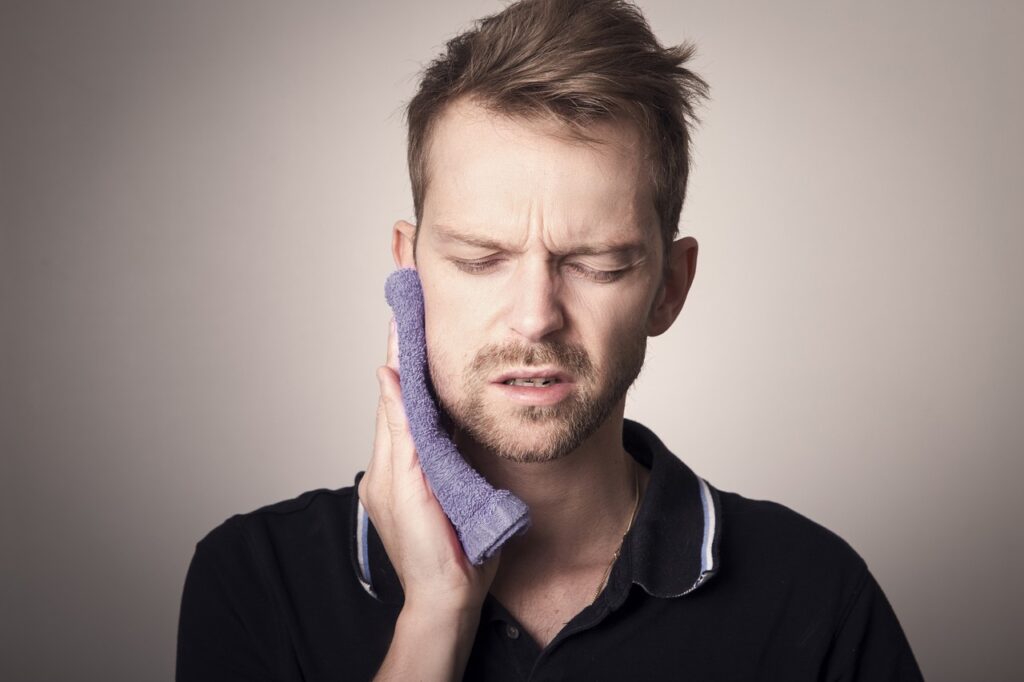Do you know that oral health can impact your mental health? Read to know the relationship between oral health and mental health.
Oral Health and Mental Health Connection
The connection between oral health and mental health can impact your whole body, including your mouth. If you have mental health issues, you might have more teeth and gum problems. But having good oral health can also make your overall health better and even help your mental health.
Impact of Oral Health on Mental Health
Your oral health and mental health are connected more than you might think. Mental health issues can sometimes lead to habits like smoking, which harm your teeth and gums. Some people with mental health problems might also avoid going to the dentist.
People with mental illnesses such as anxiety or depression may do things or face problems due to their condition that affect their oral health.
The problems due to the connection between oral health and mental health:
- Not feeling like eating, which can lead to poor nutrition.
- Eating too many sugary foods and drinks.
- Being afraid to go to the dentist (dental anxiety).
- Feeling tired all the time.
- Having trouble with everyday tasks like brushing their teeth.
- Dealing with pain.
- Having issues with alcohol or drug use.
- Smoking.
- Having a dry mouth which is not suitable for oral health.
Poor Nutrition
Mental health issues can affect what you eat. If you have anxiety, depression, or another mental illness, you might not have much appetite. Or you might eat a lot of sugary treats to feel better temporarily, but this can lead to tooth problems like cavities.
Some people with mental health problems may not get enough calcium in their diet, which can weaken the outer layer of their teeth. Certain eating disorders, like bulimia (where someone makes themselves vomit after eating), can harm the throat, teeth, and mouth. Bulimia can also reduce the amount of saliva in the mouth, leading to dry mouth and dental issues.
“Burning mouth syndrome,” a condition where the mouth feels like it’s burning, might be a sign of poor nutrition, but it can also be linked to depression. Some folks with depression can have good oral health and nutrition but still experience this syndrome.
Anxiety
Anxiety is common, and many people, even without mental health issues, feel anxious about going to the dentist. If you have an anxiety disorder, you might avoid the dentist, which can lead to dental troubles.
Low Energy
Depression or other mental illnesses can make you feel tired and unmotivated. You might find it hard to do simple things like brushing your teeth or making meals, which can result in poor nutrition.
Pain
Feeling more sensitive to pain is another effect of problems due to oral health and mental health. This can make you nervous about going to the dentist.

Dry Mouth
Certain medications used for oral health and mental health issues, like antidepressants, can cause dry mouth. A dry mouth can raise your risk of gum disease.
Tips to Manage Your Mental Health
You can do things to make your oral health and mental health better.
Exercise
Not only is exercise good for your body, but it’s also good for your mood. It can boost your self-esteem and change your brain chemicals to make you happier.
Connect with Others
Having good relationships makes you feel like you belong, gives you support, and makes you feel valuable. You can build better relationships by having lunch with a friend from work, going for a walk with someone, talking with your family during dinner without phones or TV, or volunteering in your community.
Practice Mindfulness
Take time to slow down, pay attention to your feelings, and notice the things around you, like sounds, smells, and sights. Being in the moment can help you feel calm and focused and give you a sense of well-being.
See Your Doctor
If you’re struggling with your mental health, talk to your doctor. They might give you medicines or help you find a therapist to treat your problem.

Stress Reducing Activities
If you see that your teeth have damaged enamel, it could mean you’re really stressed and anxious. If that’s the case, it’s a good idea to try activities that can help you relax and reduce stress.
You can do things like using an app to sleep better and feel calmer at night or trying deep breathing and meditation exercises. In fact, you can practice deep breathing and meditation at different times during the day to help you unwind and stay focused.
Healthy Diet
Eating healthy food, like fruits, vegetables, and foods with vitamins, is a good thing. It can really affect how you feel and how your teeth and gums are doing. Ensure you eat many healthy foods to make you feel good and keep your mouth healthy.
Remember, oral and mental health are connected, so visit your dentist regularly. If you’re worried about your mental health, don’t wait to talk to your doctor about it.
Conclusion
The blog guides you on oral health and mental health. Hope you are aware of the tips to maintain oral and mental health. Contact Dentalsway for more information. We are happy to help you maintain your oral health.


